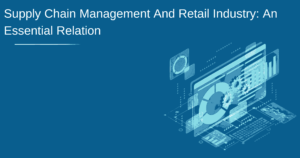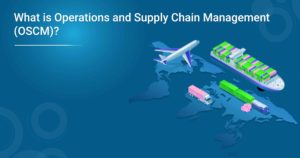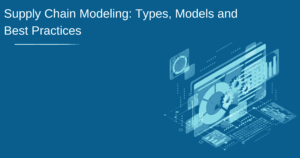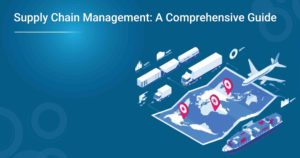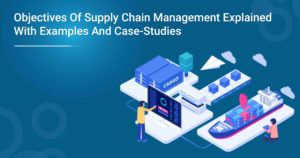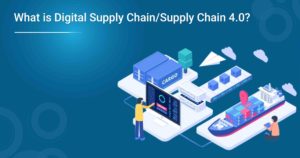Interviewing for a position in supply chain management? Supply chain management (SCM) plays a vital role in any company, and the interview process should reflect that. Expect to be asked a mix of general questions about your experience and specific questions about your knowledge of supply chain management. To help you prepare, we’ve compiled a list of more than supply chain management interview questions and advice on how to answer them.
Before getting started with the interview questions, take a look at our Advanced Certificate in Operations, Supply Chain and Project Management which is the gateway towards a successful career in SCM.
Top 16 Supply Chain Management Interview Questions & Answers
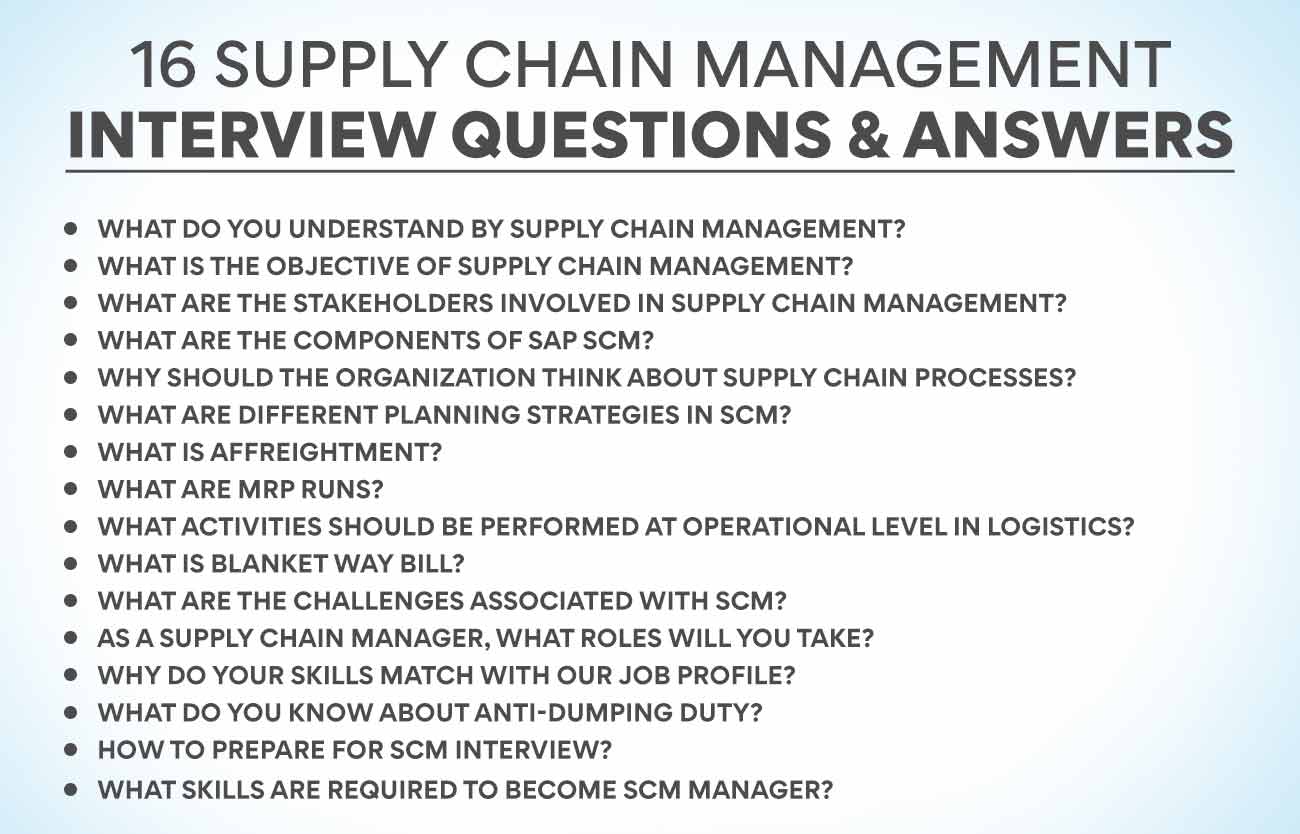
What Do You Understand By Supply Chain Management?
- SCM is the process of planning, implementing, and controlling the supply chain’s operations to provide maximum customer value and achieve sustainable competitive advantage.
- The main goal of SCM is to ensure that all supply chain members are working together efficiently and effectively to meet customer demand.
- SCM involves managing the flow of materials, information, and finances as they move between different stages in the supply chain.
- SCM requires close collaboration between all supply chain members, from suppliers to manufacturers to retailers to customers.
- Effective SCM can help businesses reduce costs, improve efficiency, and increase customer satisfaction.
What is The Objective of Supply Chain Management?
Supply chain management aims to ensure that goods and services are delivered to customers in a timely, efficient, and effective manner. To achieve this, supply chain managers must plan and coordinate the activities of all supply chain members, from suppliers to manufacturers to retailers to customers.
Good supply chain management can benefit businesses, including reducing costs, improving customer service, and increasing competitiveness.
What Are The Stakeholders Involved in Supply Chain Management?
There are many different stakeholders involved in supply chain management, each with its own unique goals and objectives. However, all stakeholders share a common goal of ensuring that the supply chain runs smoothly and efficiently.
The most critical stakeholders in the supply chain are the manufacturers, who produce the products that need to be supplied. They must ensure that their products are high quality and meet customer demand.
The suppliers provide the raw materials or components that the manufacturers need to produce their products. They must ensure they can provide these materials on time and at a competitive price.
The logistics providers manage the transportation of goods within the supply chain. They must check that goods are delivered on time and reasonably priced.
The retailers sell the products to customers. They need to ensure that they have enough stock of products to meet customer demand and sell products at competitive prices.
Also Read: Major Decision Areas In Supply Chain Management
What Are The Components of SAP SCM?
The components of SAP SCM are:
- Warehouse management
- Transportation management
- Event management
- Inventory management
- Demand planning
- Supply chain control tower
Why Should The Organization Think About Supply Chain Processes?
A company’s supply chain refers to obtaining and producing its products or services. The supply chain includes all the steps necessary to bring a product or service from ideation to delivery to the customer.
The supply chain is a critical part of any organization, and companies need to consider how to improve their supply chain processes. Many benefits can be gained by improving the efficiency of the supply chain, including reducing costs, increasing customer satisfaction, and improving organizational performance.
There are many factors that every company should consider when thinking about how to improve its supply chain processes. Some of these factors include streamlining operations, using technology to enhance communication and coordination, and collaborating with suppliers.
Improving the supply chain’s efficiency can positively influence the bottom line of any organization. Companies that can reduce their costs associated with the supply chain can use those savings to invest in other areas of the business or pass along those savings to customers in the form of lower prices.
In addition, companies that can improve their customer satisfaction levels can see an increase in sales and market share. Finally, organizations that can improve their performance can become more successful and competitive in their respective industries.
What Are Different Planning Strategies In SCM?
Various planning strategies can be adopted in Supply Chain Management (SCM). The most common and widely used planning strategy is the make-to-stock (MTS) strategy. Under this strategy, products are manufactured or sourced based on forecasted demand. The aim is to have inventory available to meet customer demand.
Another popular planning strategy is make-to-order (MTO). Under MTO, the manufacturing or sourcing of products only takes place after an order has been received from the customer. This type of planning is often used for customized products or when there is low demand.
Another common planning strategy is assemble-to-order (ATO). ATO combines elements of both MTS and MTO. Products are manufactured or sourced based on forecasted demand, but final assembly only occurs after the customer has placed an order. This type of planning can be used when there is high demand for a product, but there is flexibility in how the product is configured.
Finally, there is engineer-to-order (ETO). ETO differs from the other strategies because it involves high customization for each order. Manufacturing or sourcing does not begin until after an order has been received, and all engineering specifications have been finalized. This type of planning is often used for complex products or when customer requirements constantly change.
Supply Chain Management Interview Questions: What is affreightment?
Affreightment is the process of shipping goods by chartering a vessel. The term affreightment can also refer to the contract between the shipowner and the charterer. This type of contract is better called a time charter.
What Are MRP Runs?
MRP runs are a vital part of supply chain management and help to ensure that materials are available when needed. They help to optimize stock levels and minimize waste while ensuring that production schedules can be met.
What Activities Should Be Performed At Operational Level in Logistics?
Operational-level logistics activities can involve various tasks, depending on the company’s specific needs. However, some common operational-level activities in logistics include:
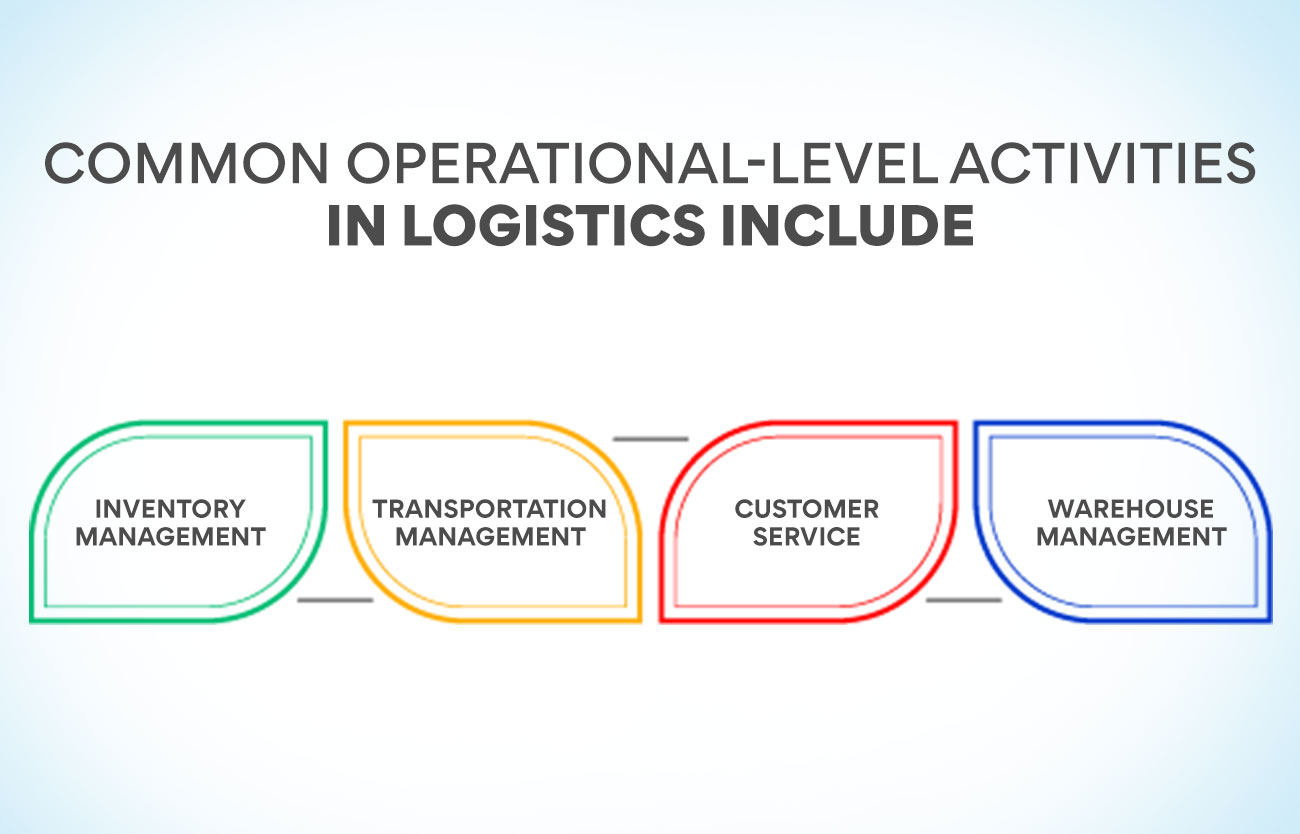
Inventory Management: This includes monitoring inventory levels, reordering stock as needed, and keeping track of inventory movements.
Transportation Management: It involves planning transportation routes, scheduling deliveries, and tracking shipments.
Customer Service: This can involve tasks such as handling customer inquiries, processing orders, and coordinating with other departments to resolve issues.
Warehouse Management: This can involve overseeing warehouse operations, managing staff, and ensuring that inventory is properly stored and organized.
What is Blanket Way Bill?
A waybill is deemed as a document issued by a carrier providing details relating to the shipment of goods. A waybill is generally only used for rail, air, or sea shipments. For shipments made by truck, the bill of lading is used instead.
The term “blanket waybill” refers to a waybill that covers multiple shipments. A blanket waybill can be used when goods are shipped to different destinations or when multiple shippers are involved in a single shipment.
A blanket waybill can be issued by the carrier or by the shipper. If the carrier issues the blanket waybill, it will typically include information about all shipments being made under the blanket waybill. If the shipper issues the blanket waybill, it will typically only include information about the first shipment in the sequence.
A blanket waybill can be a useful tool for supply chain management, as it can help to streamline the shipping process and keep track of multiple shipments. It can also help to save time and money.
What Are The Challenges Associated With SCM?
Many challenges can be faced when implementing and managing a supply chain. Some of these challenges include:
- Ensuring timely delivery of goods and materials
- Managing inventory levels
- Reducing costs throughout the supply chain
- Dealing with disruptions to the supply chain
- Managing supplier relationships
As A Supply Chain Manager, What Roles Will You Take?
As a supply chain manager, your roles will include the following:
- Overseeing the procurement of materials and supplies.
- Managing inventory levels.
- Coordinating the transportation of goods.
In addition, you will be responsible for ensuring that the supply chain runs smoothly and efficiently and that all deadlines are met.
Also Read: What is the difference between logistics and supply chain management?
Why do Your Skills Match With Our Job Profile?
Your skills match our job profile because:
- You have experience in the area of supply chain management
- Your education is related to supply chain management
- You are familiar with the latest trends and updates in the field of supply chain management
What Do You Know About Anti-Dumping Duty?
Anti-dumping duty is a protective tariff that a domestic government imposes on imports that it believes are priced below their fair market value. It can harm foreign companies’ competitiveness and may cause economic retaliation from the exporting country’s government.
The purpose of anti-dumping duties is to level the playing field for domestic companies by making imported goods more expensive. It gives domestic companies a competitive advantage and protects jobs in the importing country. Critics argue that anti-dumping tariffs are a form of protectionism that can lead to trade wars and higher consumer prices.
Anti-dumping duties are usually imposed after an investigation by the importing country’s government or trade body. There are several ways to calculate whether or not dumping has occurred, but the most general is to compare the export price with the price of a similar good in the home market. If the export price is lower, dumping is said to have occurred.
How To Prepare For SCM Interview?
Preparation for any interview is key to success, but taking the time to prepare for a Supply Chain Management (SCM) interview can be beneficial. Check out the tips on how to best prepare:
- Understand the basics of SCM. You should understand the supply chain process and its workings before you even step into an interview. Be sure to brush up on your knowledge of various aspects of SCM, such as inventory management, warehousing, transportation, and more.
- Know the company’s SCM system inside and out. If you’re interviewing for a position with a specific company, you must familiarize yourself with that company’s particular SCM system. Learn about how it works and what role you would play within the system if hired.
- Be prepared to discuss your experience and skill set. When interviewed for an SCM position, be ready to discuss your previous experience working in supply chain or related fields. The interviewer will likely ask questions about your skillset and abilities, so be prepared to highlight why you are the ideal candidate for the job at hand.
What Skills Are Required To Become SCM Manager?
There is no one-size-fits-all answer, as the skills needed to become an SCM Manager will vary depending on the specific organization and position. However, some essential skills are required to be successful in this role.
Some of the most critical skills needed to become an SCM Manager include the following:
- Strong communication skills: As an SCM Manager, you will need to effectively communicate with a variety of different stakeholders, including suppliers, internal teams, and customers. You must be able to clearly articulate your vision and objectives and ensure that everyone is on the same track in terms of what should be and need to be done.
- Excellent organizational skills: A SCM Manager must be highly organized to manage all aspects of the supply chain effectively. This includes creating and maintaining accurate records, developing efficient processes and procedures, and coordinating multiple tasks simultaneously.
- Strong negotiation skills: In many cases, an SCM Manager will need to negotiate contracts with suppliers on behalf of their organization. Therefore, you must have strong negotiation skills to get the best possible deals for your company.
Conclusion
Supply chain management is a complex and ever-evolving field, which makes it all the more important to be prepared for your next interview. Whether you’re an experienced professional or an amateur, these supply chain management interview questions will help test your knowledge and help you ascertain what to expect in your next meeting. Good luck with your next interview!
Don’t forget to check out our Advanced Certificate in Operations, Supply Chain and Project Management to ascertain the nitty-gritty of SCM.
More Information:
What is Digital Supply Chain/Supply Chain 4.0?
What is Green Supply Chain? An Overview
Green Supply Chain Management: What It Is and Why It Matters?










